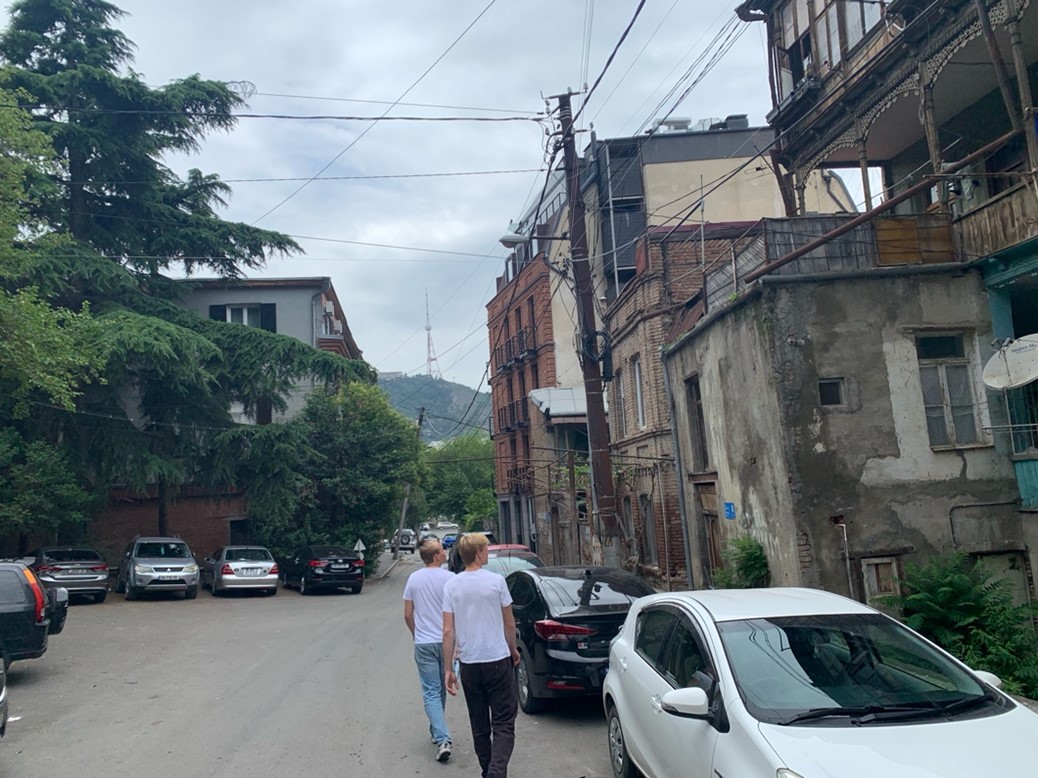By Frans
When I decided to take a gap year, I knew I wanted to immerse myself in a place with a rich history. Georgia turned out to be the perfect destination. Tbilisi, the capital nestled at the crossroads of Europe and Asia, has been shaped by centuries of invasions, trade, occupation, and cultural exchange. As soon as I arrived, I could feel the unique energy that comes from being in a place where history is not just preserved but all around you.

A lovely guide shared a charming legend from Georgian folklore with us. According to the tale, when God was assigning territories to the different peoples of the world, the Georgians arrived late to the gathering. Their delay stemmed from a quintessentially Georgian activity—they were immersed in a traditional feast. By the time the Georgians appeared, all the lands had already been distributed. Naturally, God was displeased and asked them why they had taken so long to arrive. They explained that they had been toasting, but not just any toasts—they had been raising their glasses to God, to themselves, and to peace on Earth. Impressed by their sincerity and festive spirit, God decided to reward them. He granted them a special piece of land, one He had been saving for Himself. Visiting Georgia, it was not hard to understand why Georgians are proud of their country.

Georgia is situated between the Caucasus mountains, bordering Armenia to the south, Azerbaijan to the southeast, Russia to the north, and Turkey to the southwest. Having been part of many different kingdoms, at times independent and for much of the 20th century part of the Soviet Union, its deep history showed like tree rings in the culture, cuisine, and architecture. It’s like nothing I had ever experienced before. Just strolling around the city, you encounter buildings ranging from ancient and medieval to Art Nouveau, Soviet-era brutalism, and modern skyscrapers in glass and steel—all right beside each other. Growing up in Stockholm, this couldn’t be further from Swedish cities, where zoning laws and architectural control lead to the complete opposite.




Apparently, a common tip when visiting Moscow is to go to a Georgian restaurant if you want to eat good food. Visiting Tbilisi and experiencing the cuisine, we understood why. The blend of influences—from Persian and Ottoman to Russian and Western European—created a unique and diverse food culture. A favorite of mine was khinkali, best described as a large dumpling often stuffed with meat, spices, and broth. The dish is said to have evolved from a dish brought by the Mongols from western China in the 13th century.
Finally, I must add how incredibly warm and welcoming the Georgian people were. They pointed us in the right direction, taught us how to take part in their traditions, and showed us their beautiful country. We were sometimes mistaken for being Russian, and despite the strained relationship and autonomous republics supported by Russia occupying 20% of the country, even then nobody was ever anything but kind to us. After the Euro final, which England lost to Spain, some thought we were Englishmen since we had been cheering for them and came up to us to console us.
As my time in Georgia ended, I reflected on the rich stories, flavors, and faces that had shaped my journey. Tbilisi had offered more than just a destination—it gave me a deep connection to a place where history and culture came alive.
